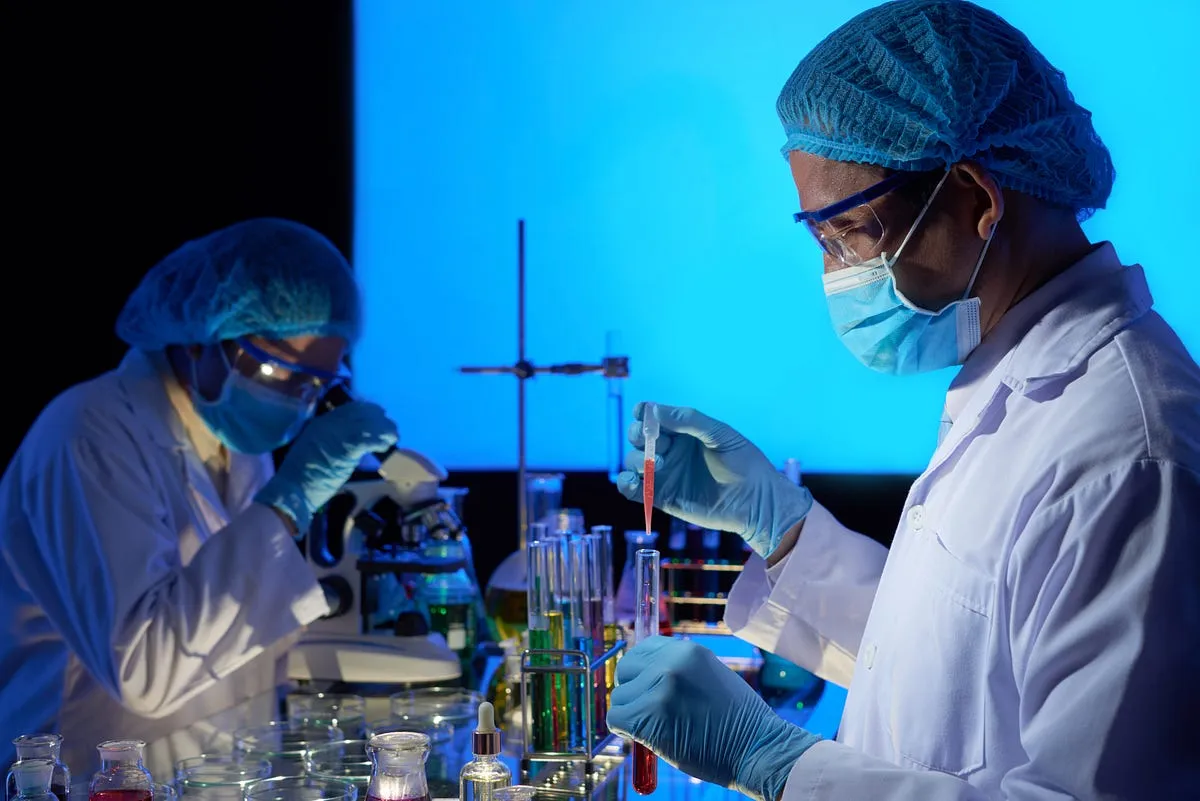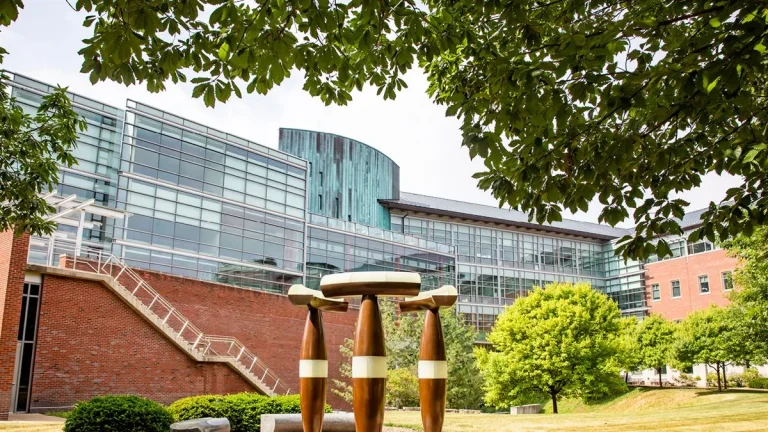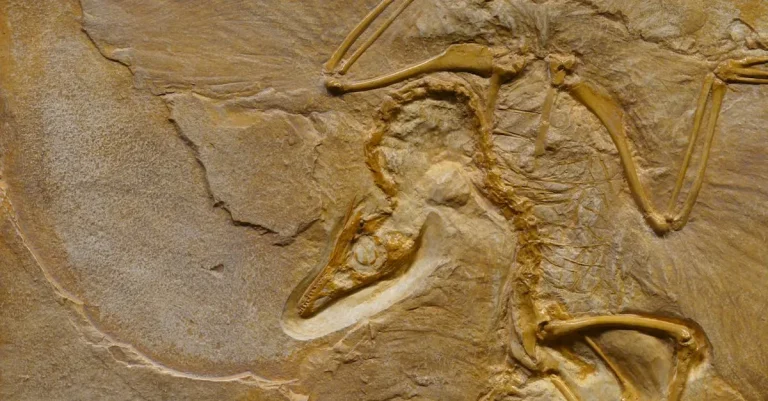Is Forensic Science A Good Career?
If you love watching forensic crime shows and are fascinated by using science to solve mysteries, a career in forensic science may be perfect for you. This comprehensive guide will walk through key factors to assess if forensic science is a promising profession.
If you’re short on time, here’s a quick answer: Forensic science is generally a good career offering competitive salaries, strong demand, and the chance to work on impactful cases. However, it also requires significant education and shift work.
Defining Forensic Science
Forensic science is a fascinating field that combines scientific principles with criminal investigations. It involves the application of various scientific techniques and methods to collect, analyze, and interpret evidence in order to assist in solving crimes and bring justice to victims.
This multidisciplinary approach makes it an exciting and rewarding career option for those interested in both science and law enforcement.
Using Science in Criminal Investigations
Forensic scientists play a crucial role in criminal investigations by using scientific methods to examine and analyze evidence found at crime scenes. They use their expertise in areas such as biology, chemistry, physics, and genetics to identify and process evidence such as fingerprints, DNA samples, fibers, and ballistics.
By carefully analyzing this evidence, forensic scientists can provide valuable information that can help establish the guilt or innocence of a suspect.
For example, DNA analysis has revolutionized forensic science and has become an essential tool in solving crimes. It allows forensic scientists to match DNA samples found at crime scenes with those of potential suspects, providing strong evidence that can be used in court.
This technology has led to the successful resolution of numerous cold cases and wrongful convictions.
Diverse Specialties
Forensic science offers a wide range of specialties, allowing individuals to pursue their interests and expertise in specific areas. Some common specialties include:
- Forensic DNA Analysis: This field focuses on analyzing DNA samples and using them to establish identity, determine relationships, and solve crimes.
- Forensic Toxicology: Forensic toxicologists analyze bodily fluids and tissues to determine the presence of drugs, alcohol, or other chemicals that may have contributed to a crime or death.
- Forensic Ballistics: Experts in this field examine firearms, ammunition, and bullet trajectory to link firearms to crimes and identify potential suspects.
- Forensic Anthropology: Forensic anthropologists analyze skeletal remains to determine the age, sex, and other characteristics of unidentified individuals.
- Forensic Psychology: Forensic psychologists study the behavior and mental state of individuals involved in criminal cases to provide insights and assessments for legal proceedings.
These are just a few examples of the many specialties within forensic science. Each area requires specialized knowledge and skills, allowing individuals to find their niche and make a significant impact in the field.
For more information on forensic science careers, you can visit websites like forensicscolleges.com or aafs.org which provide comprehensive information on the field, educational requirements, and job opportunities.
Job Outlook and Salary Potential
Projected Growth
The job outlook for forensic science professionals is quite promising. According to the Bureau of Labor Statistics, the field is expected to grow by 14% from 2018 to 2028, which is much faster than the average for all occupations.
This growth can be attributed to the increasing demand for forensic evidence in criminal investigations, as well as advancements in technology that require skilled forensic scientists.
With the rise in crime rates and the need for scientific evidence in courtrooms, the demand for forensic scientists is expected to remain high. This means that individuals pursuing a career in forensic science can look forward to a stable and secure job market.
Salary Ranges
The salary potential in the field of forensic science varies depending on various factors such as experience, education, specialization, and geographic location. On average, forensic science technicians earn a median annual wage of $59,150.
However, it is important to note that salaries can range from around $35,620 for entry-level positions to over $97,200 for experienced professionals in managerial or supervisory roles.
It’s worth mentioning that the salary potential in forensic science can also be influenced by the sector in which one works. For example, forensic scientists working in federal government agencies tend to earn higher salaries compared to those employed in state or local governments.
Additionally, forensic science professionals who specialize in areas such as DNA analysis, digital forensics, or forensic toxicology may have better salary prospects due to the specialized nature of their work.
It’s important to keep in mind that these salary ranges are estimates and can vary based on individual circumstances. For more accurate and up-to-date salary information, it’s recommended to consult reliable sources such as the Bureau of Labor Statistics or professional organizations like the American Academy of Forensic Sciences.
Education Requirements
Forensic science is a highly specialized field that requires a strong educational background. To pursue a career in forensic science, individuals need to meet specific education requirements. These requirements often vary depending on the specific job position and employer, but generally include a combination of formal education and hands-on training.
Bachelor’s Degree
Most entry-level positions in forensic science require at least a bachelor’s degree in forensic science or a related field such as chemistry, biology, or criminal justice. A bachelor’s degree program in forensic science typically includes coursework in areas such as forensic chemistry, forensic biology, crime scene analysis, and evidence collection.
It also provides students with a solid foundation in scientific principles and laboratory techniques. A bachelor’s degree is a great starting point for those interested in pursuing a career in forensic science.
Master’s Degree
While a bachelor’s degree is sufficient for many entry-level positions, some forensic science careers, such as forensic toxicology or forensic DNA analysis, may require a master’s degree. A master’s degree in forensic science allows individuals to specialize in a specific area of forensic science and gain advanced knowledge and skills.
These programs typically include advanced coursework, research opportunities, and internships. A master’s degree can provide individuals with a competitive edge in the job market and open up opportunities for higher-level positions.
Hands-on Training
In addition to formal education, hands-on training is essential for a career in forensic science. This can be gained through internships, cooperative education programs, or through on-the-job training.
Hands-on training allows individuals to apply their knowledge in real-world settings, work with advanced laboratory equipment, and learn from experienced forensic scientists. It provides valuable practical skills and enhances job prospects.
It is important to note that the education requirements for a career in forensic science may vary depending on the specific job position and employer. It is always recommended to research the specific requirements and qualifications needed for the desired career path.
Additionally, staying updated on the latest advancements and technologies in the field through continuing education and professional development is crucial for success in this rapidly evolving field.
Day-to-Day Work Environment
Forensic science professionals work in a dynamic and ever-changing environment that requires a combination of fieldwork and laboratory analysis. The nature of their work can vary depending on the specific area of expertise, such as crime scene investigation or lab testing and analysis.
Crime Scene Investigation
One aspect of a forensic scientist’s day-to-day work involves crime scene investigation. This thrilling and challenging task requires meticulous attention to detail, as forensic scientists are responsible for collecting and analyzing evidence found at crime scenes.
They use various techniques, such as fingerprint analysis, DNA profiling, and ballistics examination, to help solve crimes and provide crucial evidence in court proceedings. This hands-on work allows forensic scientists to be at the forefront of criminal investigations and contribute to the pursuit of justice.
Lab Testing and Analysis
Another significant part of a forensic scientist’s day-to-day work takes place in the laboratory. Here, they conduct thorough testing and analysis on collected evidence to uncover crucial information that can be used in criminal investigations.
Forensic scientists utilize state-of-the-art equipment and techniques to examine substances like blood, fibers, and drugs, as well as conduct forensic toxicology and DNA analysis. This meticulous and precise work is crucial in providing accurate and reliable results that can have a significant impact on legal proceedings.
Irregular Hours
Forensic science is not a typical 9-to-5 job. Due to the nature of their work, forensic scientists often work irregular hours and may be called upon to respond to crime scenes at any time of the day or night.
They must be prepared to work under pressure and be available for on-call duty, especially in cases that require immediate attention. While this aspect of the job can be demanding, it adds an element of excitement and unpredictability to the profession.
It is important to note that the day-to-day work environment of a forensic scientist can vary depending on their specialization and the specific organization or agency they work for. Some may focus solely on crime scene investigation, while others may primarily work in a laboratory setting.
Regardless of the specific role, forensic science offers a diverse and fulfilling career path for those interested in the intersection of science and criminal justice.
Pros and Cons
Choosing a career in forensic science can be an exciting and rewarding decision. However, it is important to consider both the pros and cons before diving into this field. Let’s take a closer look at some of the advantages and disadvantages of pursuing a career in forensic science.
Pros:
- Job Security: Forensic science is a rapidly growing field, with an increasing demand for qualified professionals. This means that job opportunities in this field are expected to remain strong in the coming years.
- Helping Solve Crimes: As a forensic scientist, you will play a crucial role in aiding law enforcement agencies in solving crimes. Your work can contribute to the justice system by providing evidence that can help convict criminals.
- Diverse Career Options: Forensic science encompasses various disciplines, including DNA analysis, ballistics, toxicology, and crime scene investigation. This diversity allows you to choose a specialization that aligns with your interests and skills.
- Continuous Learning: The field of forensic science is constantly evolving due to advancements in technology and research. This means that as a forensic scientist, you will have the opportunity to engage in lifelong learning and stay up-to-date with the latest techniques and methodologies.
Cons:
- Emotional Toll: Working in forensic science can expose you to disturbing and graphic crime scenes. This can take an emotional toll on individuals who may find it challenging to cope with the realities of the job.
- Long Hours and Pressure: Forensic scientists often work long hours, especially when dealing with high-profile cases or tight deadlines. The nature of their work requires attention to detail and accuracy, which can lead to high levels of pressure.
- Complex and Technical Work: Forensic science involves complex laboratory work and the use of advanced equipment. This requires a strong background in science and a high level of technical expertise.
- Legal Challenges: As a forensic scientist, you may be required to testify in court as an expert witness. This can be a challenging experience, as you will be subjected to rigorous cross-examination by defense attorneys.
It is crucial to carefully consider these pros and cons before pursuing a career in forensic science. While the field offers many rewards, it is important to be aware of the challenges that come with it.
Ultimately, the decision to pursue a career in forensic science should be based on your passion for the field, your ability to handle the demands of the job, and your desire to contribute to the justice system.
For more information on forensic science careers, you can visit websites such as www.forensicscience.org or www.americanacademyofforensicsciences.org.
Conclusion
In summary, forensic science offers the chance to work on critical cases using diverse scientific disciplines. While extensive education is required and hours can be long, projected career growth, competitive salaries, and opportunities to make an impact make it a potentially rewarding field for the right individual.
With robust demand, solid pay, and meaningful work, forensic science stands as an excellent career path for those willing to pursue required qualifications and put in the necessary effort.







